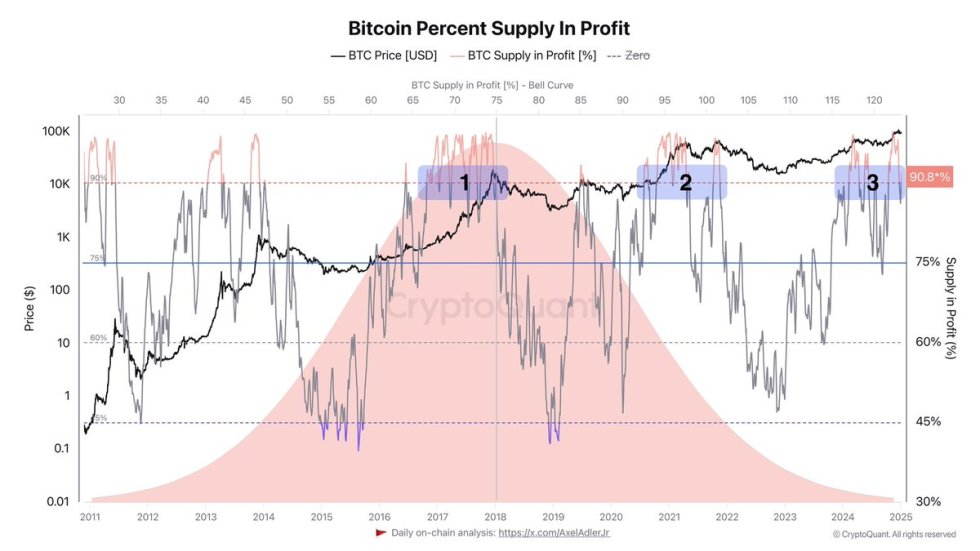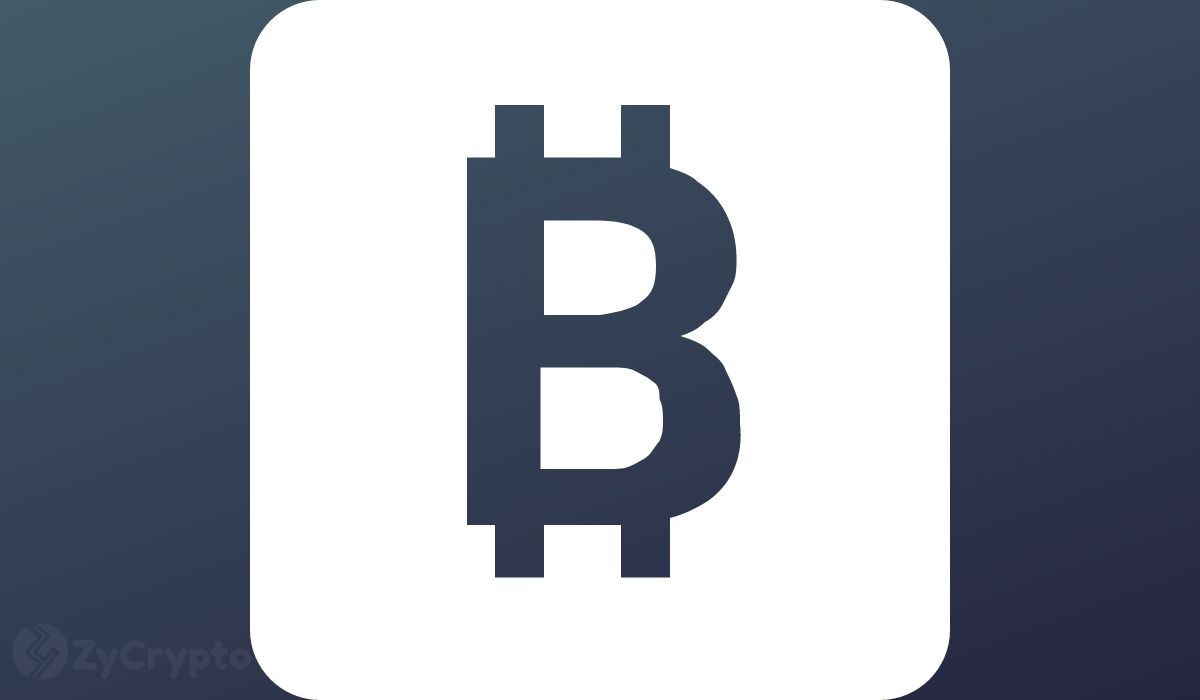2020-1-23 01:35 |
If you’re someone who is looking to learn more about Bitcoin but is unsure where to start, this page is for you. In our comprehensive guide to Bitcoin, we’ll give you all the information you need to know to start investing in Bitcoin, while addressing any potential questions you may have along the way. Topics to be covered in this article include:
What is Bitcoin? How is Bitcoin Different from Traditional Currencies? What is the Technology Behind Bitcoin? How to Buy Bitcoin How to Store Bitcoin How Do Bitcoin Transactions Work? Advantages of Bitcoin Disadvantages of Bitcoin SummaryBy the end of this guide, you’ll feel more-than-prepared to jump into the exciting world of Bitcoin. Let’s get started!
What is Bitcoin?Bitcoin is the world’s first cryptocurrency. A cryptocurrency, otherwise known as a virtual currency, is simply an encrypted piece of data that can be used to buy goods and services. Bitcoins are not something that can be touched physically, instead they are bits of code that exist only in the digital realm.
Created in the wake of the 2008 financial crisis, Bitcoin was designed to provide an alternative to traditional currencies and financial institutions. What makes Bitcoin different from previous attempts at digital currencies — and consequently so valuable — is the ingenious network and security systems on which the platform is built.
How is Bitcoin Different from Traditional Currencies?Bitcoin is different in several ways:
Bitcoin is Decentralized – Bitcoin has no central issuing authority. In other words, no single entity controls the supply of Bitcoin in circulation. The value of your Bitcoin will never be jeopardized by the decisions of bank higher-ups or The Federal Reserve. Instead, Bitcoin is controlled entirely by its users. Even the network on which Bitcoin runs is peer-to-peer and community-managed. Bitcoin Allows for Direct Transactions – Bitcoin transactions require no intermediaries. If you want to pay me with Bitcoin in exchange for a good or service, you pay me directly and no one else is involved. This comes with several benefits including increased anonymity and security. Bitcoin Offers Relative Anonymity – Bitcoin transactions are carried out using randomly generated alphanumeric addresses and keys which are not traceable to your identity. We’ll get into more of the specifics of How Bitcoin Transactions Work in a later section of the guide. What is the Technology Behind Bitcoin? The Blockchain: Decentralized Record-KeepingBitcoin works because of a brilliant piece of technology called the blockchain. The blockchain is a public ledger that records any and all Bitcoin transactions. The ledger is maintained by a peer-to-peer network of nodes running Bitcoin software. As Bitcoin transactions occur, they are combined in a group with other transactions into a unit called a “block”. The blocks are processed, verified, and added to the blockchain using advanced cryptographic methods that are extremely secure and resistant to data modification.
Once they are added to the chain, the blocks are broadcast to other nodes in the network. Each node maintains its own copy of the blockchain and verifies each transaction along the way. The chain is unalterable and available to everyone, making fraud a near-impossibility.
MiningThe actual processing carried out by these nodes is called “mining”. Volunteers, known as miners, use extremely high powered computers to verify incoming transactions, collect them into blocks, and add them to the blockchain.
In order to be accepted by the network, each block requires what’s called a proof-of-work. Miners are essentially given an extremely difficult puzzle with a single numeric answer. The answer could be any number and the puzzles get more and more difficult as time goes on.
There is no specific system to determine the answer, so miners simply have to use extremely powerful computers to guess, one-by-one, until they find the correct value.
On average, the number of guesses computers make before finding the correct answer is upwards of 200.5 QUINTILLION. This is an incredibly time and energy intensive process, even for the most powerful computers.
So why do Bitcoin miners bother spending all this time and energy trying to add blocks to the blockchain? It’s pretty simple; miners are rewarded with new Bitcoin for every block they successfully add. As of right now, the reward for adding a single block to the blockchain is 12.5 Bitcoins (~$137,000 at the time of writing). This incentivizes the miners to carry out the heavy-lifting which keeps the Bitcoin network running smoothly.
Clearly there is a lot of money to be made in the mining process. That being said, it requires a truly extraordinary amount of computing power to be able to compete with the biggest mining organizations, and is therefore not pursued by the average Bitcoin user.
A look inside one of the world’s largest Bitcoin mining operations. – Al Jazeera
How to Buy BitcoinNow that you have a solid understanding of what Bitcoin is and how the technology works, it’s time to tell you how you go about buying and storing it. In short, you buy from Bitcoin Exchanges, and you store with Bitcoin Wallets.
Bitcoin ExchangesThe easiest way to buy Bitcoin is on a Bitcoin exchange. Bitcoin exchanges are platforms on which you can buy, sell, or trade Bitcoin in exchange for traditional currencies or other cryptocurrencies. There are dozens of cryptocurrency exchanges out there and users should conduct a reasonable amount of research before choosing which one is best for them.
Here’s a quick breakdown of our top exchange recommendations:
Coinbase – One of the oldest and most trusted exchanges, Coinbase is an all-around excellent platform, particularly if you’re new to cryptocurrency. Its website is slick and intuitive, making it incredibly easy to buy 4 of the most popular cryptocurrencies: Bitcoin, Ethereum, Litecoin, and Bitcoin Cash. Coinbase also offers very flexible payment options and charges low fees compared to many other exchanges. Users can purchase the above cryptos using credit cards, debit cards, and bank transfers. Gemini – Founded in New York in 2015, Gemini is a relatively young exchange but has quickly garnered a reputation for itself as one of the best. It offers some more sophisticated trading technology compared to Coinbase but still remains pretty user-friendly. One of Gemini’s big selling points is its very low fees, averaging around 0.25% or less. Gemini allows users to buy either Bitcoin or Ether using ACH bank transfers and bank wires. Credit and debit cards are not supported. GDAX – GDAX is another excellent option for more sophisticated cryptocurrency trading. Owned by the same company as Coinbase, the platform is extremely secure and has a solid industry reputation. Like Gemini, GDAX charges low fees averaging around 0.25% or less and accepts ACH bank transfers or bank wires.For a more in-depth look at the various Bitcoin exchanges, take a look at our guide to the Best Bitcoin, Ethereum, and Altcoin Exchanges.
But there’s one more important thing to consider before buying Bitcoin or any other cryptocurrency: how are you going to store it?
Bitcoin WalletsA Bitcoin wallet is essentially a safe for your Bitcoin; it’s a secure place to keep your virtual currency in-between transactions. Your wallet does not literally store your Bitcoin inside it. Rather, your wallet stores the mathematical keys and addresses that allow you to spend and receive your Bitcoin.
Private Keys and Bitcoin AddressesYour private key is a random string of alphanumeric characters stored in your Bitcoin wallet that’s used to sign the transactions you send. Think of it is a password that allows you to send your Bitcoin.
As the name suggests, it’s extremely important to keep your private key secret. Anyone with knowledge of your private key would be able to send your Bitcoin wherever they pleased. Protecting your private key is the primary purpose of a Bitcoin wallet.
Bitcoin wallets also store your Bitcoin addresses. A Bitcoin address is another long string of alphanumeric characters but is used for receiving Bitcoin rather than sending it. Your Bitcoin address is cryptographically derived from your private key, and any Bitcoin sent to your address is only accessible by a wallet containing your private key.
While addresses are related to your private key, there is no way to determine your private key simply by looking at the address. This means that it is completely safe to tell others your Bitcoin address. In fact, it’s a necessary step for someone to send you Bitcoin.
Wallet TypesNow that we understand what Bitcoin wallets do, we can talk about choosing the one that’s right for you. Generally speaking, security is the most important consideration when choosing a Bitcoin wallet. That being said, other factors like ease of access and convenience are also worth thinking about.
Here’s a quick rundown of the 5 different types of wallets:
Online – Online wallets are accessible through a web browser. The main advantage of online wallets is that you can easily access them anywhere with an internet connection. The major downside is that your private keys are stored on the website’s servers, which means you have to trust them completely to protect your Bitcoin. We recommend only storing small amounts of Bitcoin on online wallets. Desktop – Desktop wallets are software programs that you install onto your computer which store your private keys. These wallets are typically more secure than web-based ones because your keys are not stored online. That being said, your computer is still susceptible to viruses or other malware that might have the potential to steal your Bitcoin, so they still are not ideal for large amounts of Bitcoin. Mobile – Mobile wallets are apps installed onto your phone or tablet. There are two categories of mobile wallets: either they store your private keys locally on the device (similar to a desktop wallet) or they store your private keys online (like a web-based wallet). Mobile wallets offer the convenience of being able to use your Bitcoin on the go, but they also suffer from the same security risks as online or desktop wallets. Hardware – Hardware wallets are physical devices that store your private keys offline in “cold storage”. Most of these devices are small and plug into your computer via USB whenever you need to access your Bitcoin. These hardware devices are immune to viruses and are generally considered to be the most secure wallets available. The only real downside of hardware wallets is that you have to pay for the physical hardware, though recent wallets like the Ledger Nano S are very affordable. Paper – Finally, paper wallets are an alternative method of offline cold storage. They are physical pieces of paper with your public and private keys written on them. Paper wallets are generally inferior to hardware wallets, as they are both less convenient and less secure.Hardware Wallets Trezor, Ledger Nano S, KeepKey
For a more in-depth description of the different types of wallets available, check out our guide to the Best Bitcoin Wallets.
How Do Bitcoin Transactions Work?Once you’ve gotten your wallet set up and your Bitcoin safely stored, you’re prepared to start making transactions with Bitcoin. If all of this seemed complicated, don’t worry. Actually using Bitcoin is quite simple.
The vast majority of Bitcoin transactions happen online. Paying with Bitcoin online is as simple as entering the seller’s address as well as the amount of Bitcoin you are sending. Receiving Bitcoin is similarly painless. Simply give the other party your address and they can send you the agreed-upon amount.
Bitcoin is also becoming increasingly accepted as a payment option in brick and mortar stores. This generally requires using a wallet with a mobile app to send Bitcoin to the store’s address. Stores that accept Bitcoin will often have a QR code that you can scan as a quick and easy way to pay using Bitcoin.
One important detail to note is that all Bitcoin transactions are final. If you want a refund for a purchase you made using Bitcoin, you’re out of luck.
Advantages of Bitcoin Security – As a result of the blockchain and the advanced cryptography used in the transaction process, the Bitcoin system is very secure. The relative anonymity offered by Bitcoin is an additional security bonus as it makes problems like identity theft impossible. Decentralization – As mentioned early on in the article, Bitcoin is totally decentralized and is therefore not subject to the whims of politicians and bank executives. Internationality – Bitcoin is a truly international currency. Making international transactions with Bitcoin is incredibly easy, and cryptocurrencies like Bitcoin could become increasingly valuable as we continue moving toward a more globalized economy. Bitcoin may be the future – Cryptocurrency is growing at a truly unprecedented rate. Many influential people in the tech and finance world have heralded it as the coming of a new age. Its future remains uncertain but Bitcoin could be a real game-changer. Market share – Bitcoin has a huge share of the cryptocurrency market. It was the first cryptocurrency and it has by far the most name-recognition among people not-yet-involved in the cryptocurrency world, making it the undeniable top-dog. If you’re going to invest in any cryptocurrency, Bitcoin is the most obvious choice. Disadvantages of Bitcoin Volatility – Bitcoin has famously experienced some extremely dramatic swings in value over the course of its lifetime. Overall the value has grown unbelievably, but there still remains some fear that Bitcoin is a bubble waiting to burst. Even if it isn’t, Bitcoin’s value fluctuates 5% or more on most days. Obviously the trend has been upward so far and there’s reason to be optimistic about the future, but the ride will probably be a bumpy one. As with many other types of investments, only invest what you can afford to lose. Legal uncertainty – Bitcoin’s legal and regulatory status in many countries remains pretty up in the air. Limited retail options – While the list of retailers that accept Bitcoin is consistently growing, businesses have been fairly slow to adopt the technology. This should theoretically become less of an issue as Bitcoin becomes better-established. Scams and Hacks – Scams are commonplace in the cryptocurrency world. Ponzi schemes promising unbelievable GUARANTEED returns have tempted many people, and have resulted in the loss of a lot of money. Just remember: if it sounds too good to be true, it probably is. Hacks are less common but are still a concern. Some well-known exchanges have been hacked over the course of Bitcoin’s lifetime, and stolen money can be difficult or impossible to get back. That being said, modern exchanges have learned from the failures of their predecessors and are more secure than ever before. Possibly inferior to other cryptos – Finally, in spite of its status as the most valuable cryptocurrency in the world, many would argue that Bitcoin is inferior to other cryptocurrencies. Its decentralized nature means that Bitcoin is very slow-moving. There is no central organization behind it to help it adapt and make changes. Instead, any restructuring of the network or the system requires majority consensus of the miners. Other cryptos use newer technology and might benefit from having more centralized models. Bitcoin led the world into the cryptocurrency revolution, but it’s possible that it may not be the coin to deliver on the concept’s full potential. SummaryBitcoin used the innovative technology of the blockchain to completely reimagine what financial systems look like. No longer do people have to rely on banks or credit unions to store and protect their money. Instead, Bitcoin offers its users unprecedented control of their funds in a format that is secure, convenient, and confidential.
The technology is still very new and not without its problems. That being said, most of the disadvantages described above simply stem from how revolutionary Bitcoin is. Many issues like the constant value fluctuations, legal uncertainty, and limited retail options should become less problematic as Bitcoin becomes better-established.
All this gives reason to think that Bitcoin’s future is looking bright.
The post What is Bitcoin? | A Beginner’s Guide appeared first on UNHASHED.
origin »Bitcoin price in Telegram @btc_price_every_hour
Bitcoin (BTC) íà Currencies.ru
|
|




























